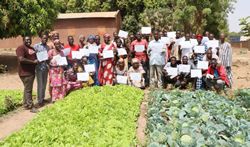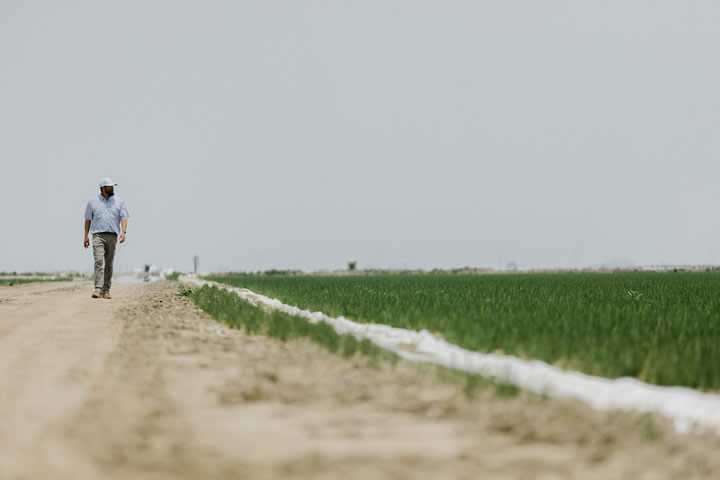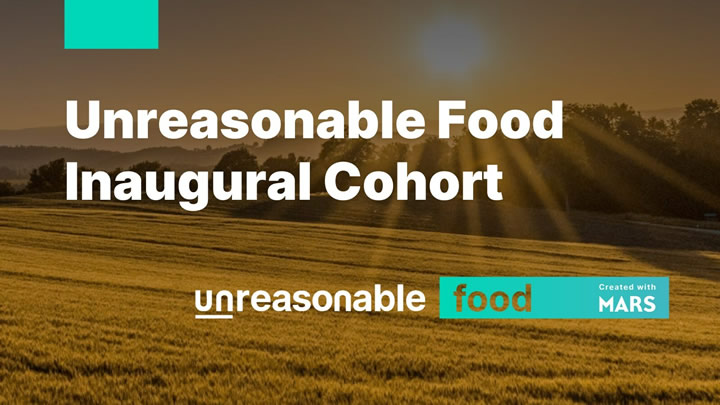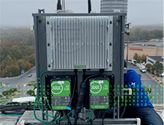Practical Steps for Measuring and Reducing Your Business' Carbon Footprint
In this guide, we walk you through some basic concepts and provide a step-by-step guide for how best to decarbonize your operations quickly and on a tight budget.
Going back to our roots: sustainable farming with natural minerals
As our agriculture industry faces the challenge of producing more food to feed a growing
population, the risk of soil degradation and the need for environmental sustainability become critical topics.
New Research Shows U.S. Agriculture Has Potential to be Greenhouse Gas Negative
The report outlines how combining reduced greenhouse gas (GHG) emissions from some agricultural activities with increased carbon sequestration in others could achieve GHG-negative agriculture. It also describes the additional research needed to help accomplish this.
AI Can Help Airlines 'Go Green' With Better Crops for Sustainable Aviation Fuel
Harnessing AI-driven agtech to improve and lower the price of the crops that make up the fuel's feedstock is emerging as one of the most promising ways to increase the viability of SAF as a wide-scale solution.
Examining the Potential of Renewable Diesel for Agricultural Equipment in 2025
Sustainable fuels face some challenges, but they remain promising, especially in the near term. As more farms seek to reduce their carbon footprints, alternative diesel could quickly become common.
Making what you need with what you have
ECHO promotes the use of low-cost solar dryers to preserve food and improve nutrition. A lot of food grown in developing countries never makes it into people's stomachs. Without refrigeration, it rots during transport or when farmers fail to sell it immediately at markets.
Top Benefits of Incorporating Demand Response into your Farm, Winery or Cannabis-Growing Operation
From a weakened grid infrastructure to the rising and unpredictable cost of energy, farms, wineries and cannabis cultivators alike are faced with mounting pressure to produce more while minimizing operational costs and incorporating greener business practices.
AgriCapture Generates First-Ever Carbon Credits for Large Scale Rice Methane Reduction in US History
AgriCapture generates these high-quality reduction credits through the implementation and in-house monitoring of economically viable and sustainable agriculture solutions and sells them to companies.
How Can We Make Urban Agriculture More Sustainable?
Urban farmers face unique challenges, from limited space to logistical hurdles, making the dream of a greener cityscape both a necessity and a challenge. As such, sustainable practices in urban agriculture are not just beneficial but essential for the future of city living.
Mars Snacking and Unreasonable Group Announce Unreasonable Food™ Year 1 Venture Cohort Aiming to Redefine the Future of Sustainable Food
Mars and Unreasonable Group collaboration will work together with fifteen rapid growth ventures across five continents in the first year, supporting sustainability and Net Zero by 2050.
Oregon's Market of Choice Invests in a More Resilient Local Food Economy in the Face of Climate Change
Dry farmers try to select a site with deep soil and good water-holding characteristics and then utilize a suite of practices to conserve soil moisture for crop growth.
VoltServer Digital Electricity™ Will Power the Next Iteration of Tech-Enabled Vertical Farming at Hardee Fresh
Hardee Fresh's new state-of-the-art vertical farm will rely on Digital Electricity solutions to simplify power distribution and ensure energy-efficient operations.
What are the Realistic Expectations for Biopesticides to Replace Synthetics in Commercial Agriculture?
As the spotlight shines on biopesticide development more than ever before, it is important to consider the fact that incorporating these - ideally - ecofriendly methods of pest control encompass more than simply embracing green alternatives.
Building the Business Case for Conservation Agriculture and Redefining Our Approach to Feeding the World
The large commercial farming operations are clearly of the opinion that conservation agriculture, which targets a considerable reduction in inorganic fertilizer and pesticides, is a fringe food option.
AI Enhancing Nanotechnology in Agriculture: A Leap Forward in Sustainable Farming
The integration of Artificial Intelligence (AI) into nanotechnology is revolutionizing agriculture, offering unprecedented opportunities to enhance crop productivity, pest control, and environmental sustainability
Records 1 to 15 of 61
Featured Product

The smartest dynamic LED grow light solution.
We set the standard in LED grow lights. No other grow light solution rivals Sollum's performance, thanks to innovation such as unmatched automatic dimming of light intensity and spectral in real time. Whether you grow specialty or mass market produce and all options in between, we have a cost-effective, environmentally friendly and fully supported LED grow light solution to fulfill your business needs.



.jpg)
.jpg)
.jpg)





.jpg)



.jpg)